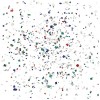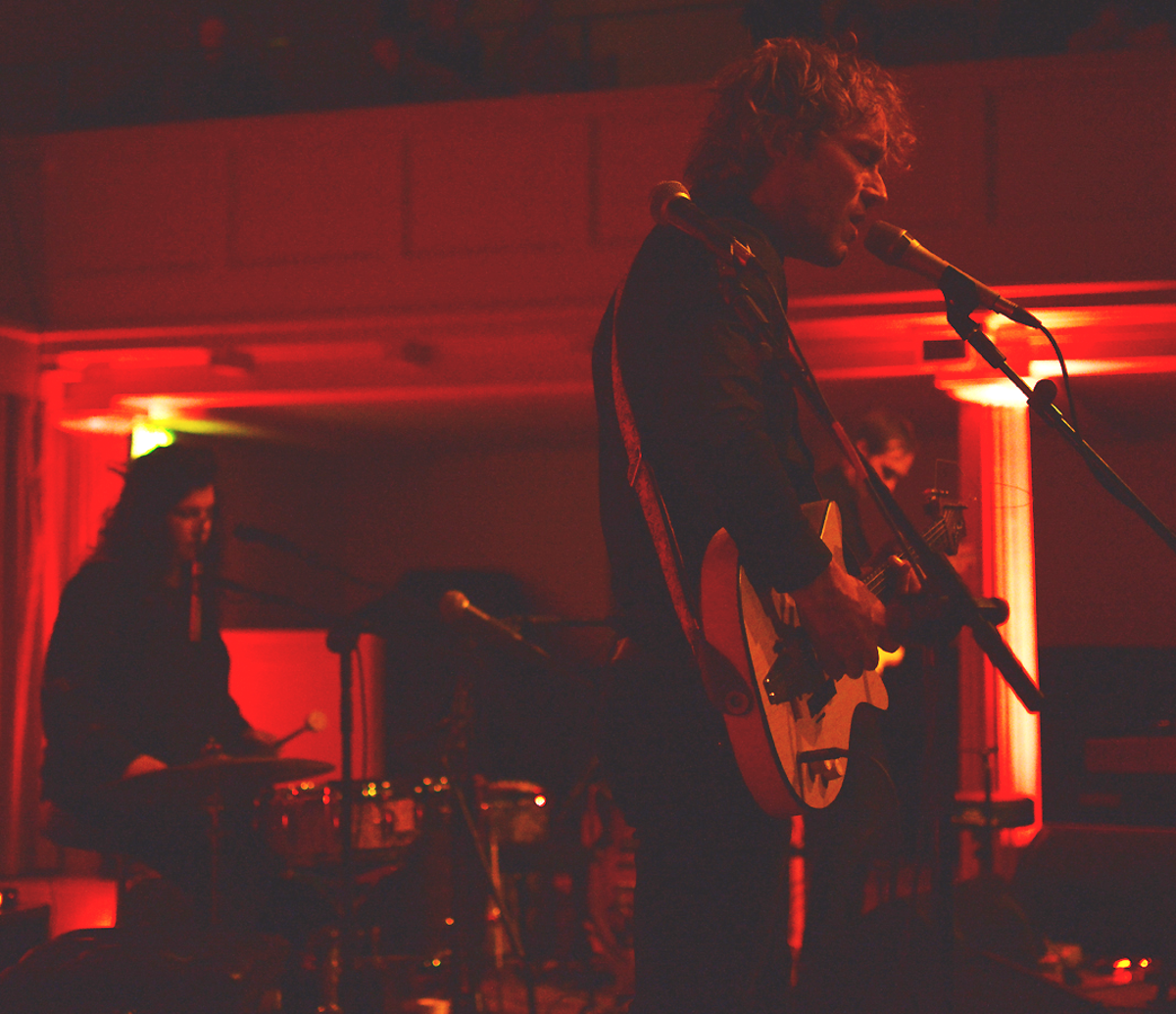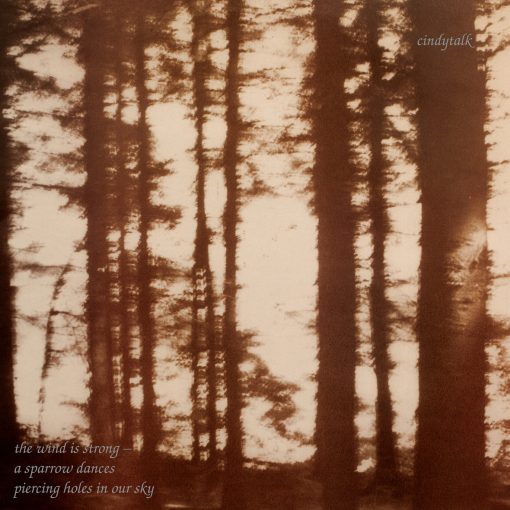 Recorded over the space of ten years up until the early part of the current century, The Baltika Years gathers together a selection of recordings that Ben Zimmerman made almost entirely from samples he manipulated using software running on the now long-defunct Tandy DeskMate computer operating system.
Recorded over the space of ten years up until the early part of the current century, The Baltika Years gathers together a selection of recordings that Ben Zimmerman made almost entirely from samples he manipulated using software running on the now long-defunct Tandy DeskMate computer operating system.
Dog barks (if that’s what they truly are) and shaken, strummed and clunked objects shimmer and frazzle past in an often dizzying parade of sounds and sensations. It’s sometimes curiously like being pulled into the bells and whistles of Walt Disney‘s 1928 short Steamboat Willie, and the cartoon-like flavour is added to by the way in which Zimmerman layers his repetitive samples, built using a restricted palette constrained by the limitations of both soft- and hardware. At others, the electronic tones pulse and ripple into deracinated loops where all that hiss and compression at once flatten and give the sounds their own particular textural warmth (lovingly given the full Dubplates & Mastering treatment in Berlin too, no less) — and who can resist track titles like “Redecorated Proto-Computations”, “75000multicolouredorgasmaticballoons” or “The Space Jack Hummer” either?
Side C is where the samples are given a thorough rinsing, shuddering, trilling and stomping in bursts and flecks of rhythmic fragments whose very lack of obvious direction becomes their own self-perpetuating form along the way. The intrusion of what is presumably a real piano recording in “Life Without Liz” adds a sombre note, while “One-liter Plastic Bottle” offers a thirty-second glimpse of 8-bit Tandy Neubauten rhythms that preface “Now I Am Numb’s” blast of low-res minimalist breakcore.But it’s the six parts of Side D’s “Pausebreak” which bracket the experimental snippets which have transpired since Side A’s longform extravaganza with an altogether more febrile set of constructions. Here Zimmerman stutters and trips out into a drum’n’bass symphony in posterised synaesthetic style, breakbeats and looping drum patterns colliding clumsily at first but then accumulating growing sense of monomaniacal conviction against a flurry of mid-range tones, ominously warped piano counter-melodies and stop-start drum machine beats. It’s like being thrust into an alternate universe where junglism was spewed forth in gouts of self-transforming code, and it’s easy to forget just how much dedicated programming Zimmerman must have put into what is actually quite an impressive piece of work, laying the production values to one side, and even maybe taking time to revel in their low fidelity.
As with the recently rediscovered experimental computer recordings of Bob Lee, AKA -bøb-, The Baltika Years is perhaps not for those expecting a polished, groundbreaking artefact to glide smoothly across the ears and to disappear into the catalogue of mildy-interesting rediscovered gems from the not-so distant past. It may not shatter anyone’s reality tunnels, dragging them blinking into a stunned realisation of what treasures DeskMate could produce; more it’s an impressive collection from a musician who used the limited tools available to him to make something unique.-Richard Fontenoy-



